10 Essential 21st Century post-hardcore albums
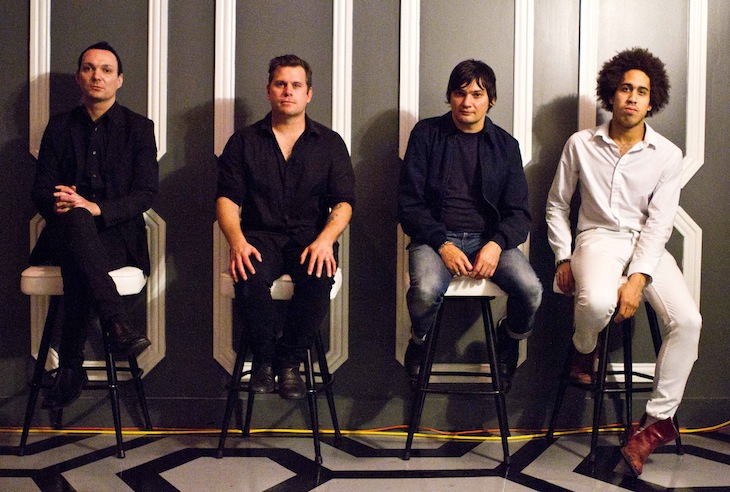
A few years ago, we compiled a list of 10 essential ’90s post-hardcore albums, which featured some heavyweights from back in the day: Fugazi, Shellac, Drive Like Jehu, Jawbox, etc. The intent was always to follow it up with a list of the best of the genre in the decade(s) that followed, but it took a while to get there. But now that Unwound has finally announced the last edition in its series of box set reissues, now seemed like a good time to finally make good on the original promise of diving into the best of the most intense, creative and powerful art-punk of the last decade and change. Post-hardcore in the ’00s did sort of evolve into something much more cringe-worthy than its origins would have suggested. The creativity and innovation of its early years sort of gave way to a major-label-backed version that diluted some of its more interesting aspects (but likely sold a lot more records). Yet that doesn’t mean that post-hardcore died. In fact, recent years have shown that more bands of late have been taking the muscle and abrasion of post-hardcore’s classic sound and applying it to a new, modern context. Here, we’re mostly looking back at records that are still more than a decade old, but nonetheless paved the way for a whole new era of post-hardcore. These 21st Century post-hardcore albums are game changers, and after a decade spent with them on repeat, we can also call them something else: Classics.
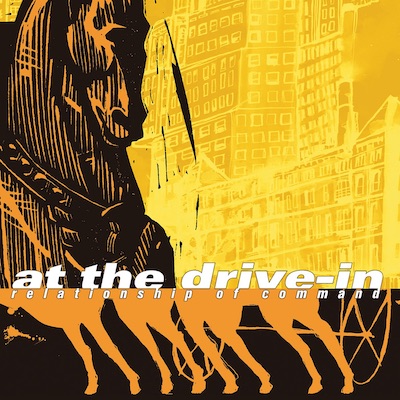
At the Drive-In – Relationship of Command
(2000; Grand Royal)
Though At the Drive-In’s run didn’t last very long, the El Paso, Texas band pioneered a style that would inspire a generation of young punks and launch the careers of many a band (The Mars Volta and Sparta, just to name a couple). Relationship of Command is both the metaphorical and literal climax of the band, featuring the their best work (built on growing tensions and artistic differences between the band members themselves) and developing a following that was increasingly mainstream. Regardless of what was happening outside of the recording booth, Relationship of Command was post-hardcore gold. It referenced prog-rock influences without jumping off the deep end that Mars Volta would eventually reached. It fleshed out cathartic anthems like “One Armed Scissor” and “Invalid Litter Dept.”, but left enough room for headier, more atmospheric gems like “Enfilade” and “Non Zero Possibility.” And let’s not forget that menacing, rhythmic intro on opener “Arc Arsenal.” I mean, hell, Iggy Pop even shows up. No, you really couldn’t ask more from a definitive punk album, even if it was an act that couldn’t be followed. – ATB
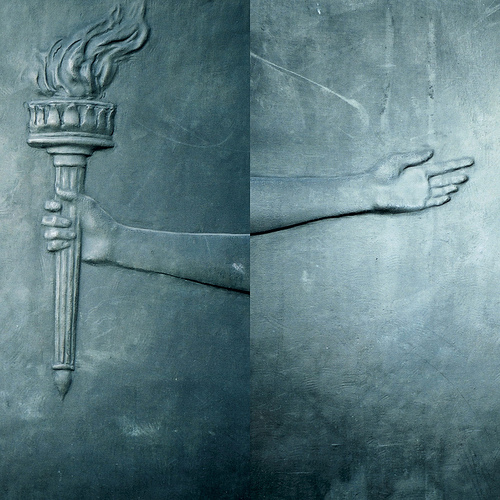
Fugazi – The Argument
(2001; Dischord)
Fugazi never put out a bad album. Sure, every fan has their favorite, but even the most opinionated punk can find something to love about their entire catalog. That aside, there are a couple things that make The Argument pretty special. Not only is it the band’s final record, but it’s their only one not released in the ‘90s. It also found the band vastly modifying their songwriting process for a more experimental and moodier final product. Featuring iconic performances by Ian MacKaye, Guy Picciotto, Joe Lally and Brendan Canty, The Argument pushed the band’s aesthetic forward into the new decade and set the stage for a slew of genre-defining artists to come. It might be Fugazi’s last record, but damn if they didn’t go out with guns blazing. – ATB
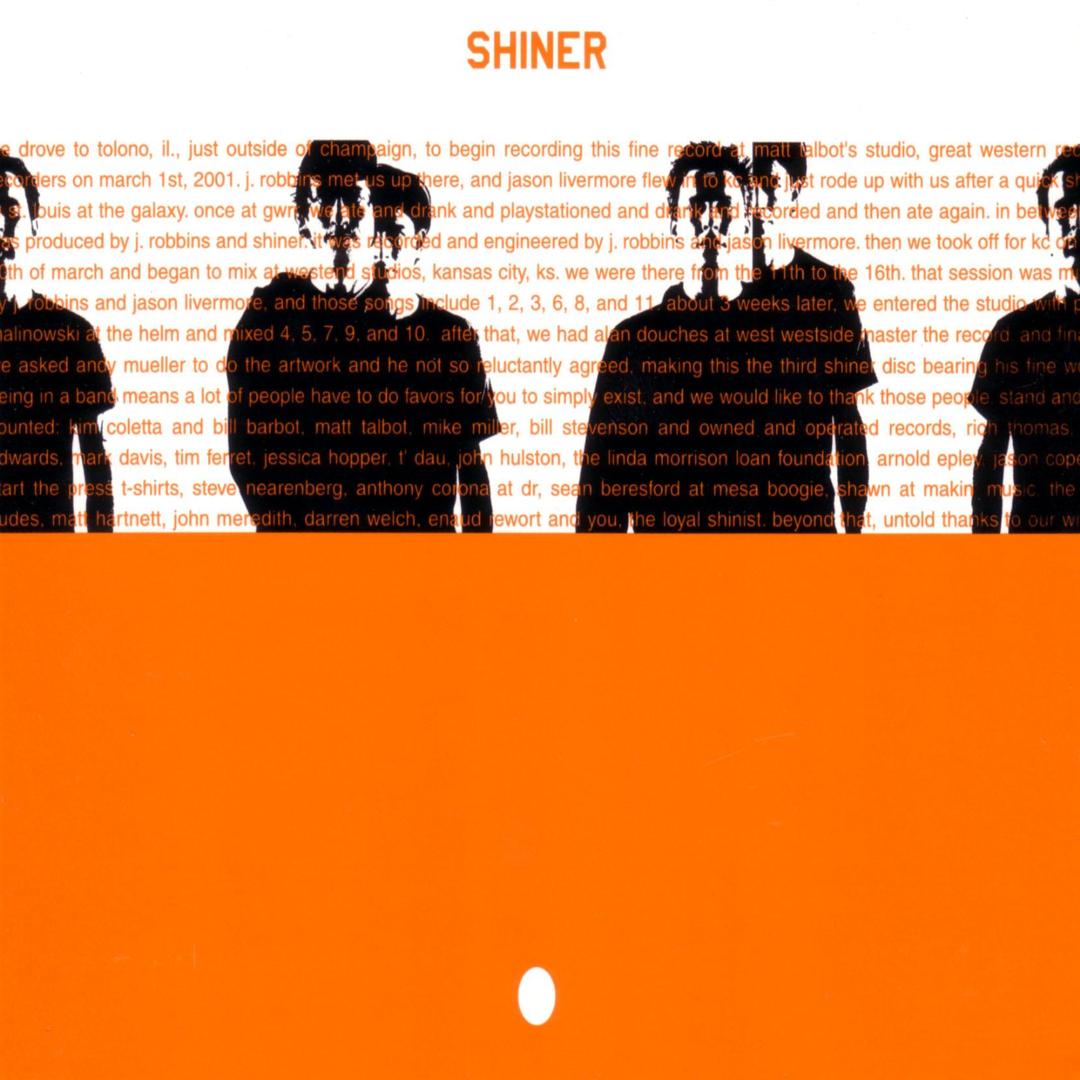
Shiner – The Egg
(2001; deSoto)
Kansas City’s Shiner always hovered over the line between the dense alt-rock of Failure and the abrasively melodic punk of Jawbox, yet it wasn’t really until they released their 2001 swan song, The Egg, that they arrived upon the right ratio between the two. As their final act as a band, The Egg found Shiner fully realizing everything that they had been building up to, sharpening their most jagged parts while putting a greater emphasis on their melodic core—their best and most underrated quality. Sure, the band rocked, but that in itself isn’t really the most impressive thing about The Egg. It’s how the band puts their mathematically precise instrumental prowess to work in the service of some truly powerful songs, not the least of which is the title track, which explodes (almost literally) into a soaring, stunning hallucination. – JT

Unwound – Leaves Turn Inside You
(2001; Kill Rock Stars)
This is, I would argue, the best album on this entire list. And yet it’s also the one that’s arguably not even that much of a proper post-hardcore album. Bear with me; during the ’90s, Washington’s Unwound made more than their share of noisy, pulsing punk songs with ferocious riffs and pummeling low end. But as the band’s legacy neared its end, the trio began to explore more of an atmospheric approach with Leaves Turn Inside You, favoring trippy studio experiments, layered shoegaze compositions and nuanced art-punk songwriting. Its first track, “We Invent You,” features a full two minutes of feedback before any real melody happens, and when it does, it’s surprisingly understated. But, you know, there’s plenty of moments of abrasion and intensity, just check the jerky punch of “December,” the dizzy tumble of “Treachery,” the minimalist roar of “Scarlette,” or the triumphant build of “Off This Century.” But there’s also the icy, spacious post-rock of 10-minute track “Below the Salt.” Leaves Turn Inside You isn’t merely a post-hardcore album—it’s an avant garde masterpiece. – JT
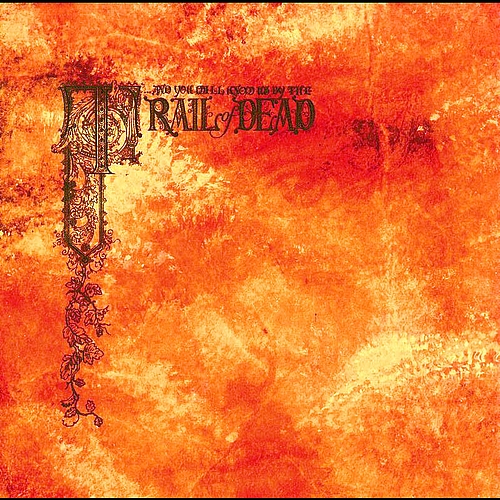
…And You Will Know Us by the Trail of Dead – Source Tags & Codes
(2002; Interscope)
Much like the other Texans on this list—At the Drive-In—the musicians in …And You Will Know Us by the Trail of Dead eventually found themselves giving in to the lure of elaborate, conceptual art-rock (though not quite so indulgently as The Mars Volta). They did eventually swing back to blistering punk with Lost Songs, but their greatest moment remains 2002’s Source Tags and Codes, a triumphant journey into immaculately written and performed art-punk. The album pulses and drives with the intensity of hardcore, and even the sound of it at times (“Homage”), but it’s in their fluid mixture of sophisticated, sometimes symphonic rock with punk drive that makes Source Tags and Codes such a mesmerizing listen. “Another Morning Stoner” is one of the most elegant juxtapositions of strings and post-hardcore abrasion of the last 15 years, while “Relative Ways” is the lighter-in-the-air anthem that set them apart from some of their less commercial peers. This album is hailed as a masterpiece for good reason—it’s one of the best albums of the past decade and a half, no genre qualification necessary. – JT
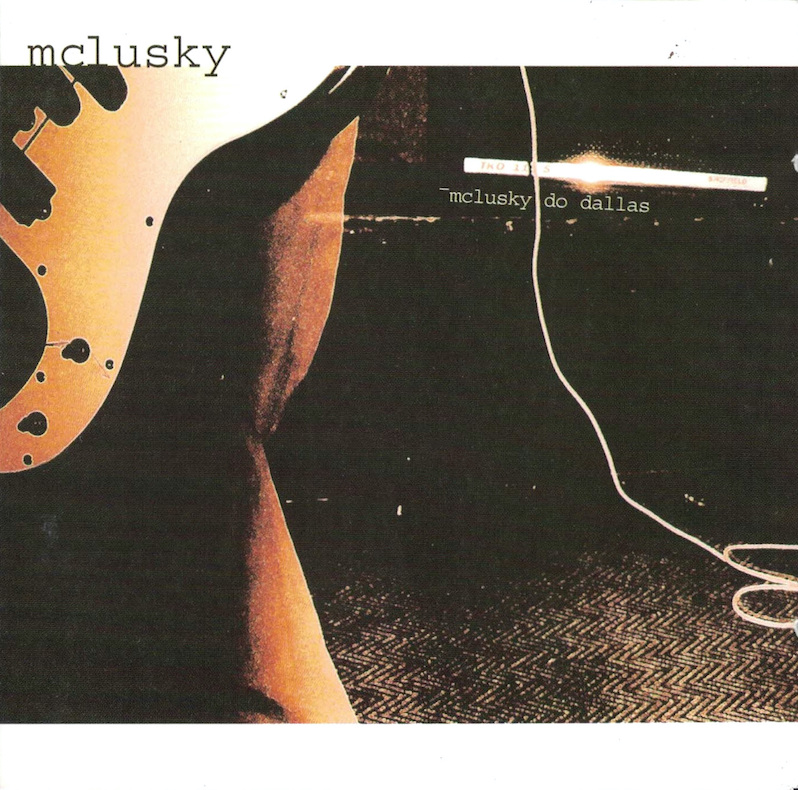
McLusky – McLusky Do Dallas
(2002; Too Pure)
Welsh trio McLusky bore all of the hallmarks of a great post-hardcore band of the ’90s, only they did it after the decade ended. Following a promising, if not-quite-there debut, the group made their proper breakthrough with a set of Albini-recorded two-minute bashers on McLusky Do Dallas, establishing themselves as the smirking, snotty heirs apparent to the throne once held by so many Touch and Go and Amphetamine Reptile guitar scrapers. This is heavy, raw stuff, but it’s remarkably catchy—you might never think that a song like “Lightsaber Cocksucking Blues” might actually be hit-single material, but then again, you might never conceive of such a song title, period. The group comes across like the good-natured assholes in the neighborhood that always give you shit, but will probably give you some free beers for your trouble (Who else could make a line like “All of your friends are cunts” seem more profanely charming than outright offensive?). It’s nihilism with a smile. – JT
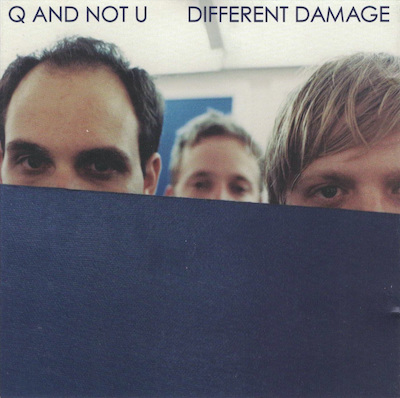
Q and Not U – Different Damage
(2002; Dischord)
Thanks to Dischord Records, Washington, D.C. was a hotbed for superb post hardcore in the ‘90s, and well into the ‘00s. But Q and Not U, who would go on to create dynamic, oddball dance-punk, were something of an anomaly, even on such an eccentric label. On debut record No Kill No Beep Beep they played a frantic, more traditional form of post-hardcore, but by 2002, the band had stripped down to a trio and approached the genre with a barer palette, forcing them innovate in more peculiar ways than their louder counterparts. The result was Different Damage, a record that took the moodier approach of a record like The Argument and ran with it at full speed. – ATB

Cursive – The Ugly Organ
(2003; Saddle Creek)
Cursive weren’t supposed to be a big deal. They were just a small, emo-tinged post-hardcore act from Omaha, Nebraska who had a decent run in the local scene before they went on with their lives in the late ‘90s. But when singer/guitarist Tim Kasher’s marriage fell apart, he got the band together for 2000’s Domestica, a concept album based loosely around that relationship fallout. And while Domestica is a great listen in its own right, it’s probably most heralded for pushing Cursive into the indie-rock spotlight and bringing about the tortured masterpiece that would become The Ugly Organ. Teaming up with cellist Gretta Cohn, the newly invigorated band came up with a sound that met halfway between a sweaty basement show and a twisted carnival show. And where other punk bands tackled global, political or societal issues, Kasher & Co. took a much more personal route, exploring the effects that years of confessional songwriting and even a modest recording career can have on one’s social and personal life. It’s a beast of a record, containing many of the band’s defining moments, including “Art is Hard,” “The Recluse,” “Gentleman Caller,” “Bloody Murderer” and “Sierra.” – ATB

Blood Brothers – …Burn, Piano Island, Burn!
(2003; Reincarnate)
Seattle’s Blood Brothers had an excellent run in the 2000s, releasing a string of records that meshed post hardcore attitude with glam rock bravado, all supporting the dual vocal attack of Jordan Billie’s cracked baritone and Johnny Whitney’s shrill, flamboyant screech. …Burn, Piano Island, Burn, their third record, is the perfect meeting place between their earlier, more straightforward work and the ambitious, complicated turns they would take with Crimes and Young Machetes. Not only does Piano Island contain some of the band’s gnarliest moments (“Fucking’s Greatest Hits”, “USA Nails”), it also plays host to brilliant moments of experimentation, including the brilliant build-up of “The Salesman, Denver Max,” the swaggering destruction of “Cecilia and The Silhouette Saloon” and the cathartic layering of “The Shame.” …Burn, Piano Island, Burn is a furious headache of an album, but it’s more than worth the disorienting buzz. – ATB

Big Ups – Eighteen Hours of Static
(2014; Dead Labour)
Few millennial bands have translated the bombast and experimentation of early post-hardcore better than NYC’s Big Ups. Their music is loud, anthemic and gritty, and the quartet knows how to write a tight song and play it even tighter. Eighteen Hours of Static is a series of home runs, but “Goes Black,” “Justice,” “Wool” and “Fine Line” are standouts, combining a pummeling rhythm section with Joe Galarraga’s sharp vocals, which turn from a whisper to a strained roar at the drop of a dime. A lot of bands have produced top-notch post hardcore in the last couple of years, but Big Ups come the closest to making a product that feels as immediate as the original thing. – ATB


Hi,
My name is Tomasz Masłowski.
I would like to send you ep of my band to review.
Link to the bandcamp: https://wherethebirdssleep.bandcamp.com/releases
Best,
Tomasz
glad to see Q and not U on the list. I also never see These Arms Are Snakes on post-hardcore lists and I would totally count them, especially the This is Meant To Hurt You EP – fantastic.
These Arms Are Snakes are awesome, and definitely top-notch post-hardcore. I think they were on our longlist. At some point we might do a more comprehensive, longer list of post-hardcore’s best albums.